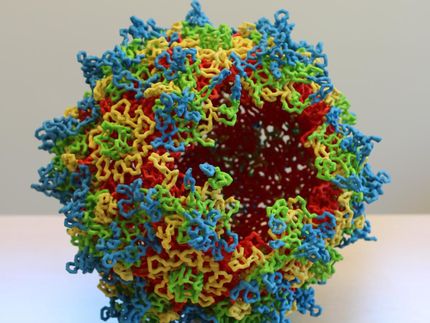Cellectis enters into strategic collaboration and investment agreement with AstraZeneca
Cellectis to receive up to $245M in cash, with potential for additional milestones, plus tiered royalties
Cellectis announced it has entered into (i) a Joint Research Collaboration Agreement (the “Collaboration Agreement”, (ii) an investment agreement relating to an initial equity investment of $80M, and (iii) a memorandum of understanding (the “MOU”) relating to an additional equity investment of $140M, with AstraZeneca. The Collaboration Agreement aims to accelerate the development of next generation therapeutics in areas of high unmet need, including oncology, immunology and rare diseases.
Under the terms of the Collaboration Agreement, AstraZeneca will leverage Cellectis’ proprietary gene editing technologies and manufacturing capabilities to design novel cell and gene therapy candidate products. As part of the Collaboration Agreement, 25 genetic targets have been exclusively reserved for AstraZeneca, from which up to 10 candidate products could be explored for development. AstraZeneca will have an option for a worldwide exclusive license on the candidate products, to be exercised before IND filing.
Pursuant to the Collaboration Agreement, Cellectis’ research costs under the collaboration will be funded by AstraZeneca and Cellectis will receive an upfront payment of $25M. Under the terms of the Collaboration Agreement, Cellectis is also eligible to receive an investigational new drug (IND) option fee and development, regulatory and sales-related milestone payments, ranging from $70M up to $220M, per each of the 10 candidate products, plus tiered royalties.
As a condition to the signing of the Collaboration Agreement, AstraZeneca has agreed to make an initial equity investment of $80M in Cellectis by subscribing for 16,000,000 ordinary shares, at a price of $5.00 per share (the “Initial Investment”). The new shares are issued to AstraZeneca by the board of directors of Cellectis pursuant to the 17th resolution of Cellectis’ shareholders meeting held on June 27, 2023. Following settlement and delivery of the new shares (expected to be on November 6, 2023), AstraZeneca will own approximately 22% of the share capital, and 21% of the voting rights of the Company, will have the right to nominate a non-voting observer on the board of directors of Cellectis, and will have the right to participate pro rata in Cellectis’s future share offerings.
Additionally, the MOU contemplates that AstraZeneca will make a potential further equity investment in Cellectis of $140M by subscribing for two newly created classes of convertible preferred shares of Cellectis: 10,000,000 “class A” convertible preferred shares and 18,000,000 “class B” convertible preferred shares, in each case at a price of $5.00 per share (the “Additional Investment”). Until they convert into ordinary shares, the “class A" convertible preferred shares would have single voting rights and would not carry any double voting right at any moment, and the “class B” would carry no voting rights except on any distribution of dividends or reserves. Both class of preferred shares would enjoy a liquidation preference (if any liquidation surplus remains after repayment of Cellectis’ creditors and of par value to all shareholders) and would be convertible into the same number of ordinary shares with the same rights as the outstanding ordinary shares. The MOU is non-binding and the Additional Investment remains to be confirmed by both parties following a consultation process with Cellectis’ works council. If confirmed, the closing of the Additional Investment will remain subject to (i) Cellectis’ shareholders’ approval at a two-thirds majority of the votes cast by voting shareholders, (ii) clearance of such investment from the French Ministry of Economy according to the foreign direct investment French regulations, and (iii) other customary closing conditions. Immediately following the Additional Investment, it is anticipated that AstraZeneca would own approximately 44% of the share capital of the Company and 30% of the voting rights of the Company (based on the number of voting rights outstanding immediately after the completion of the Initial Investment) and would have the right to nominate two directors to the board of directors of Cellectis. Further, certain business decisions are subject to AstraZeneca’s approval, including, in particular, winding up any company of the Cellectis group, issuing securities senior to or pari passu with the convertible preferred shares or any shares without offering AstraZeneca the option to purchase its pro rata share of such securities (subject to customary exceptions, including issuances under employee equity incentive plans), declaring or paying dividends, prepaying indebtedness before due, and disposing of any material assets concerning gene editing tools or manufacturing facilities and selling, assigning, licensing, encumbering or otherwise disposing of certain material IP rights.
Cellectis will use the proceeds received from the Collaboration Agreement and the proposed equity investments to develop gene editing tools, for research and development expenses incurred in developing its programs, and other general corporate purposes. Cellectis’ clinical-stage assets, UCART22, UCART123 and UCART20x22 will remain under Cellectis’ ownership and control.
André Choulika, PhD, Chief Executive Officer of Cellectis, said: “We believe AstraZeneca is the perfect match to Cellectis by providing world-class expertise in the development and the commercialization of innovative medicines. This collaboration will allow us to leverage our pioneering research in gene editing and cell therapies, as well as our cutting-edge capabilities in manufacturing with the ambition to bring potentially life-saving therapies to patients with unmet medical need.”
Marc Dunoyer, Chief Strategy Officer, AstraZeneca, and Chief Executive Officer, Alexion, AstraZeneca Rare Disease, said: “The differentiated capabilities Cellectis has in gene editing and manufacturing complement our in-house expertise and investments made in the past year. AstraZeneca continues to advance our ambition in cell therapy for oncology and autoimmune diseases as well as in genomic medicine, which has potential to be transformative for patients with rare diseases.”
Other news from the department business & finance
Most read news
More news from our other portals
See the theme worlds for related content
Topic world Gene therapy
Genetic diseases once considered untreatable are now at the center of innovative therapeutic approaches. Research and development of gene therapies in biotech and pharma aim to directly correct or replace defective or missing genes to combat disease at the molecular level. This revolutionary approach promises not only to treat symptoms, but to eliminate the cause of the disease itself.

Topic world Gene therapy
Genetic diseases once considered untreatable are now at the center of innovative therapeutic approaches. Research and development of gene therapies in biotech and pharma aim to directly correct or replace defective or missing genes to combat disease at the molecular level. This revolutionary approach promises not only to treat symptoms, but to eliminate the cause of the disease itself.























































